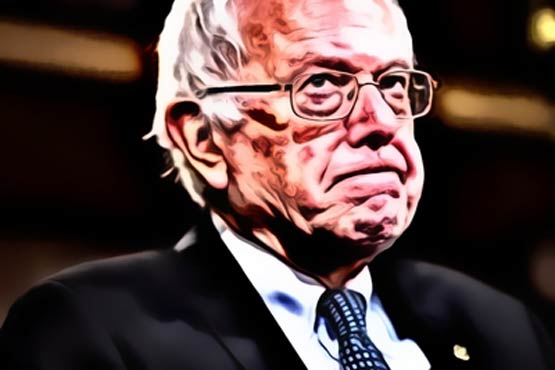
Bernie Sanders is still telling supporters he can win the Democratic presidential nomination, but his practical goal is slighter: to win concessions on the party platform and nominating rules for future elections.
Sanders, according to people close to him, realizes he's not likely to be the nominee. He wants to leave a mark on the party and agenda without causing general-election problems for Hillary Clinton, the presumptive nominee. He's not interested, they say, in weighing in on her selection of a running mate.
Sanders won the West Virginia primary on Tuesday, may do well in Oregon on May 17 and is running competitively in California, which has its primary on June 7. But Clinton, already close to commitments from the majority of delegates, will be favored on June 7 in New Mexico and New Jersey, and will wrap up the contest soon.
On the party platform, which usually is drafted and then forgotten, both sides have reason to be flexible. Clinton needs the enthusiasm of Sanders supporters, who must feel they got something out of the contest. Yet she is wary of being accused of succumbing to unreasonable demands of a Vermont socialist.
Sanders is likely to insist that at the party's July convention in Philadelphia, the Democrats should declare a commitment to a $15-an-hour federal minimum wage. Clinton favors raising it to a lower figure from its present level of $7.25. Sanders will look for expanded health care coverage, though he knows it will fall well short of the government-run universal insurance he has advocated.
Those close to him also say he expects a bold climate-change plank and will push for a ban on fracking. Clinton is likely to resist that as it might hurt her in November in important states like Pennsylvania. Sanders wants a carbon tax, which Clinton will probably oppose.
Sanders will urge changes in party nominating rules to reduce the future role of super delegates -- elected officials who are free to vote for whomever they choose. He also wants to create incentive for parties to let independents vote in party primaries. It's hard to imagine the Clinton forces waging a fight on this.
While Sanders has the reputation of being an unyielding ideologue, he's more open to deal making than that image suggests. In the Senate, for example he and John McCain forged a compromise to overhaul the Veterans Administration.
Moreover, the Democratic challenger has indicated contempt for Donald Trump, the likely Republican nominee, and doesn't want to be blamed for any Republican success.
One of his top advisers, Tad Devine, uniquely appreciates the dynamics of an establishment nominee negotiating these matters with an ideologically driven challenger. In 1988, he represented the Democratic nominee Michael Dukakis in pre-convention negotiations with Jesse Jackson, the left-wing challenger. This time Devine will be on the other side.
Comment by clicking here.
Albert R. Hunt is a Bloomberg View columnist. He was formerly the executive editor of Bloomberg News, directing coverage of the Washington bureau. Hunt hosts the weekly television show "Political Capital with Al Hunt." In his four decades at the Wall Street Journal, he was a reporter, bureau chief and executive Washington editor, and wrote the weekly column "Politics & People." Hunt also directed the Journal's polls, was president of the Dow Jones Newspaper Fund and a board member of the Ottaway community newspapers. He was a panelist on the CNN programs "The Capital Gang" and "Novak, Hunt & Shields." He is co-author of books on U.S. elections by the American Enterprise Institute and the Brookings Institution.



 Contact The Editor
Contact The Editor
 Articles By This Author
Articles By This Author